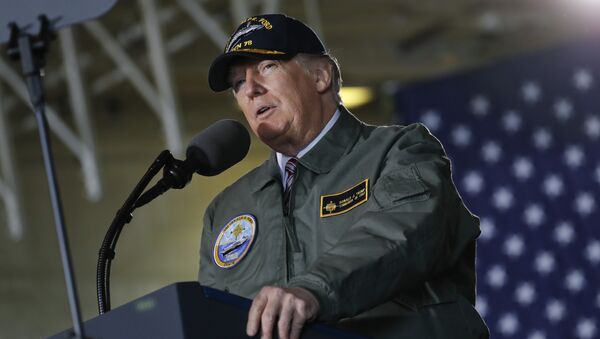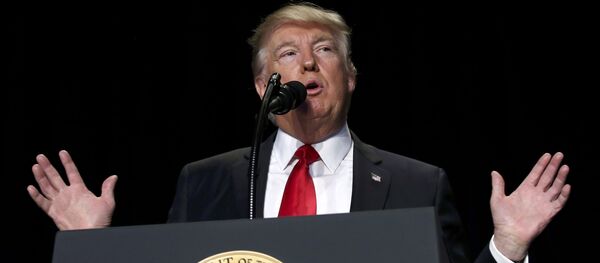Sleboda debunked Trump’s assertion that the US military was in need of a "great rebuilding," pointing out that, "The US is already spending over seven times more than the next seven countries put together. The budget is around $600 billion, with another few tens of billions of dollars in overseas discretionary spending."
He explained that Trump’s touted $54-billion annual increase would likely come closer to $20 billion, dropping a proposed 10 per cent rise in funding to three per cent. Sleboda noted that there have been proportionally much greater increases in military spending in recent history, including during the first two years of the Obama administration.
Speaking before Congress Tuesday, Trump pledged, "I am sending Congress a budget that rebuilds the military, eliminates the defence sequester and calls for one of the largest increases in national defence spending in American history."
Sleboda observed that, "there’s a lot of rhetoric, a lot of sleight of hand, it does represent an increase in military spending, but much smaller than is being forecast." He remarked that Trump "is asking to quite a lot with that increase, he’s talking about a lot of new ships, a lot of new aircraft, but he’s also proposing a 10 per cent increase in the combat personnel in each of the four major military services. I don’t know how he’s going to do that with just the increase that he’s proposing."
Loud & Clear host Brian Becker suggested that Trump is trying to convince the American public that the US is falling behind the militaries of rival nations like China and Russia, "So we have a situation where, again, the public narrative is the United States military is a suffering institution, that the country’s security is at risk…signaling that the United States is falling behind its main adversaries."
The analyst explained that Washington is in no danger of falling into the wrong end of an arms gap with Russia or China, stating, "If we take, on face value, the $54 billion [budget increase] that Trump is promising, that [figure] is slightly greater than the entire Russian military budget, which is around $50 billion for 2016, and is expected to stay around the same level going into the next year."
Sleboda also pointed out that "China spends about $121 billion, which is less than one third of what the United States spends."



